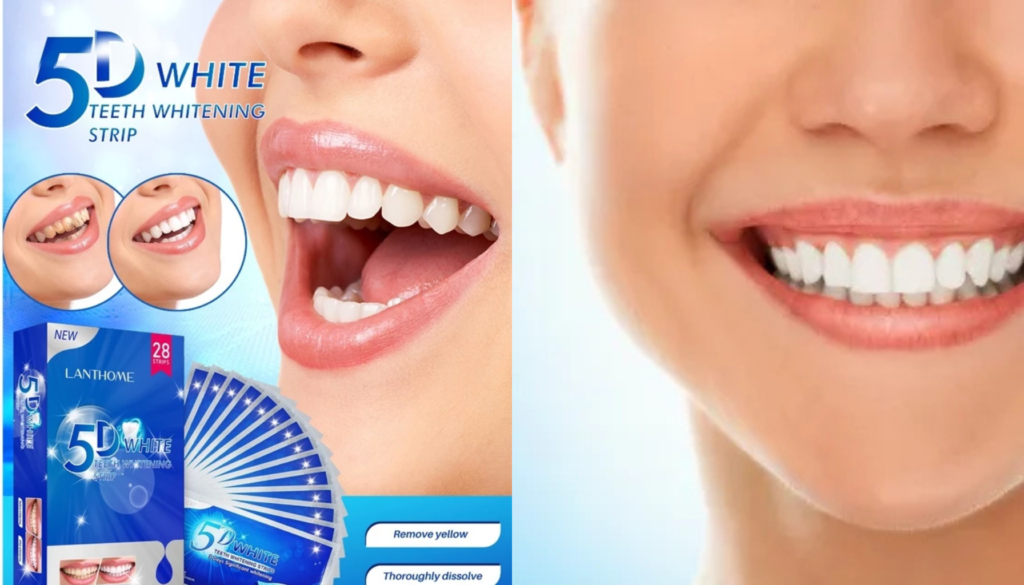Teeth whitening is one of the most sought-after cosmetic dental procedures by those looking to enhance their smile quickly, safely, and effectively. In this comprehensive guide, you’ll learn everything about whitening—from how it works and the types available to benefits, side effects, and expert care tips—all written with original insights and SEO best practices.
What is Teeth Whitening?
Teeth whitening is a dental procedure aimed at removing stains and discoloration from teeth, giving you a brighter, more uniform smile. Using safe whitening agents like hydrogen peroxide or carbamide peroxide, it can be done professionally in-office or at home under dental supervision.
Beyond aesthetics, whitening can significantly boost confidence and positively influence how others perceive you.
How Does Teeth Whitening Work?
Teeth whitening works through chemical reactions that break down pigment molecules in the teeth. These reactions reach into the enamel and dentin layers, oxidizing the stains and making them less visible.
In-Office Whitening Steps
- Clinical evaluation and stain assessment.
- Professional dental cleaning to remove plaque and tartar.
- Application of whitening gel, with or without activating light.
- Sessions last 30 to 60 minutes depending on the case.
At-Home Whitening (Supervised)
- Custom-made trays designed by the dentist.
- Application of whitening gel at home for 2 to 4 weeks.
- Regular follow-ups with the dentist for best results.
Why Do Teeth Become Discolored?
Teeth discoloration happens due to various factors, divided into extrinsic (external) and intrinsic (internal).
Extrinsic Stains
- Coffee, tea, red wine, dark sodas.
- Tobacco use.
- Poor oral hygiene.
Intrinsic Stains
- Antibiotic use (like tetracycline).
- Fluorosis.
- Trauma and natural aging of teeth.
Main Types of Teeth Whitening
There are different types of teeth whitening, each suited for specific cases and goals:
Laser Whitening
Performed at the dental clinic, laser speeds up the bleaching process, offering faster results.
Tray-Based Whitening
A safe and effective at-home method, supervised by your dentist, using custom-fitted trays.
Whitening Strips
Over-the-counter products for mild discoloration. Results are less dramatic and may cause gum irritation.
Who is Teeth Whitening For?
Teeth whitening is recommended for individuals over the age of 16 who have natural, healthy teeth and want to enhance their smile. Patients should be free of active cavities, gum disease, or oral infections before starting.
People who smoke or consume highly pigmented foods regularly should consider changing habits to maintain their whitening results.
Who Should Avoid Teeth Whitening?
While the procedure is generally safe, there are a few contraindications:
Not Suitable For:
- Pregnant or breastfeeding individuals.
- Children under 16.
- People with severe tooth sensitivity.
- Those with untreated gum disease.
- Patients with full restorations or veneers on visible teeth.
Benefits of Teeth Whitening
Beyond aesthetics, teeth whitening offers several psychological and lifestyle advantages:
- Increased self-confidence.
- A younger, healthier-looking appearance.
- Better motivation to maintain oral hygiene.
- Complements other cosmetic treatments like veneers or aligners.
Side Effects of Teeth Whitening
While uncommon, some side effects can occur:
- Temporary sensitivity to hot or cold.
- Mild gum irritation.
- Minor discomfort in treated teeth.
These effects usually resolve shortly after treatment ends. Your dentist may recommend desensitizing products if needed.
Pre- and Post-Whitening Care Tips
Proper care before and after teeth whitening is essential for optimal and long-lasting results.
Before Whitening
- Get a professional cleaning.
- Treat any existing cavities or gum issues.
- Avoid staining foods and smoking.
After Whitening
- Stay away from pigmented drinks (coffee, red wine, etc.) for 48 hours.
- Use a straw for dark beverages.
- Brush with sensitive toothpaste after every meal.
Does At-Home Teeth Whitening Work?
Yes, when supervised by a professional. Over-the-counter kits are less reliable and may harm your enamel. Dentist-approved treatments offer safer and more predictable results.
Whitening vs. Veneers: What’s the Difference?
Veneers don’t whiten your teeth but instead cover imperfections with thin shells of porcelain or resin. They’re ideal for people looking for a complete smile transformation.
Can You Whiten a Root Canal Tooth?
Yes, but it requires a special technique called internal bleaching. The dentist applies the whitening gel inside the tooth. It’s specifically for non-vital (root canal treated) teeth.
How Long Does Teeth Whitening Last?
Results can last from 1 to 3 years, depending on your lifestyle and oral care routine. Avoiding staining agents and practicing good hygiene are key to maintaining the results.
Does Whitening Damage Your Teeth?
No. When performed correctly, teeth whitening does not damage tooth enamel. It’s a safe procedure approved by major dental associations around the world.
Is Activated Charcoal Whitening Safe?
Although trendy, there’s no strong scientific evidence that activated charcoal whitens teeth. Frequent use may erode enamel, so it’s best to stick with dentist-recommended methods.
Teeth Whitening: Myths vs. Facts
- Myth: Whitening weakens your teeth.
Fact: It doesn’t affect the tooth’s structure when done properly. - Myth: Whitening toothpaste is a substitute for treatment.
Fact: It helps maintain results but won’t dramatically whiten on its own. - Myth: Anyone can whiten their teeth.
Fact: Not everyone is a good candidate—evaluation is necessary.
Whitening vs. Cleaning: What’s the Difference?
Teeth cleaning removes tartar and plaque, improving oral health. Teeth whitening, however, targets tooth color and stains, offering aesthetic improvement.
How Often Can You Whiten Your Teeth?
Ideally, once every 12–24 months. Overdoing it can lead to sensitivity or enamel wear. Always consult your dentist before repeating the procedure.
What Foods to Avoid After Whitening?
To maintain your results:
- Avoid: coffee, tea, red wine, beets, soy sauce, cola.
- Favor: white rice, chicken, milk, potatoes, and water.
Using a straw for dark drinks helps reduce contact with teeth.
Can Seniors Whiten Their Teeth?
Yes. While older teeth may be more resistant, whitening is still effective. The treatment may require more time or stronger gels but is completely viable.
Is Laser Whitening Better?
It depends. Laser speeds up results, but tray-based whitening may offer better long-term outcomes. The best method varies by individual needs and preferences.
Is Whitening Just Cosmetic?
Primarily, yes—but it also boosts confidence, can influence social and professional situations, and helps people take better care of their oral hygiene.

FAQs
- Is teeth whitening permanent?
❯ No. Results last 1–3 years with proper care. - What’s the best whitening method?
❯ Supervised at-home or in-office treatments work best. - Is it painful?
❯ You may experience mild sensitivity, but it’s not painful. - How much does it cost?
❯ Typically ranges from $120 to $400 depending on the method. - Can restored teeth be whitened?
❯ No. Crowns or fillings don’t change color and may need replacement.
